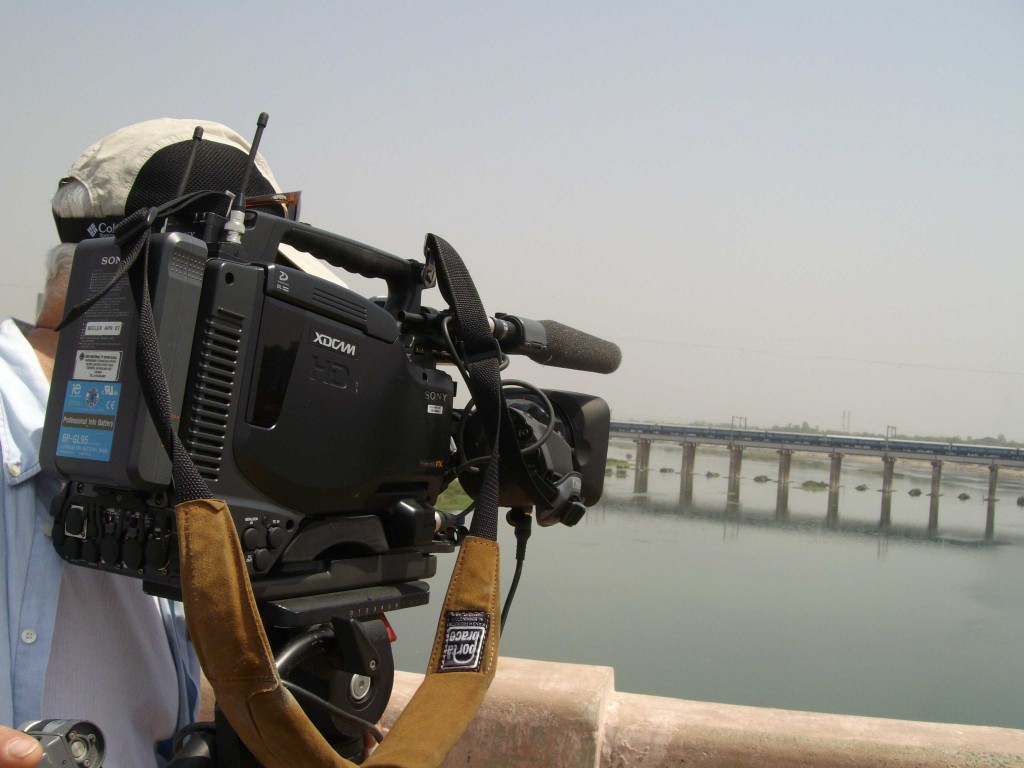I often feel sorry for the ‘firang‘ producer/director making a documentary in India. Asking the right questions is the key to a good documentary. But when you don’t know the language, you rely on an interpreter to ask the questions and interpret the answers for you. Usually, the result is a 1-line question being translated into 5 lines, and a 10-line answer being translated into 1 line.
As a fixer, I’ve watched over these fiascoes often, deliberating when I can butt in and suggest tactfully to the producer/director that the interpreter or researcher is misleading them. This can be tricky to do specially when the in-between is a NGO person who has set up the interviews and claims to know the subject in and out.
Once a NGO guy interviewing homeless people not only did not translate the answers accurately, he made up his own answers that he thought were more appropriate and would make his story of the homeless victims stronger. He cut out all references to drugs, alcohol or laziness, made by the interviewees themselves, wiping away all the hazy lines of grey and making sure that the homeless were white, and the establishment black. Needless to say, he also cut out all references to his own role in helping the homeless being ineffective and their rage at being interviewed again and again by different media groups through him, with no direct improvements in their lives.
Thus often not only are stories lost in translation, but new stories are found in translation, too.
Recently, an interview with a factory worker, again with a NGO in-between went like this:
“What is the message you want to give to the people of Gora-land?”
Silence.
“What would you like to tell Gora-land?”
“What can I tell Gora-land?”
“But if you were there, what would you tell them?”
“I would tell them about my illness and all.”
“Yes, but what is the message you would give them? Will you tell them that what they are doing is bad? That they should stop sending XXX here?”
“XXX is mixed with YYY, and used for ZZZ. It’s necessary, we use it everywhere.”
“Yes, yes, but will you tell Gora-land that the XXX they send here is poisonous?”
Nod.
“Will you tell them that they should make you better?”
Nod, nod.
NGO Guy turns to producer/director and says, “He says that he will tell Gora-land that the XXX they send here has made him ill, and that they should pay to cure him. He says ask them to make me better. He says Gora-land should stop sending XXX here.”
Producer/director nods, happy, that they have got the statement they need.
By then, any pointing out of inaccuracy is useless because the interviewee has already understood what it is that the interviewer wants him to say, what answer will make everyone happy.
Luckily, trains and rivers don’t need interpretation.



Documentary (adj): Presenting facts objectively without editorializing or inserting fictional matter, as in a book or film.
I think your piece says it all! Well put, Banno!
‘Documentum’ (Greek) : “an example, a proof, a lesson”. You’ve captured the disjunction between the life as it is and life as portrayed via mediation quite brilliantly.
you think these firangis care?
Well having had cause to watch a lot of very bad documentaries at an undisclosable location I would say that people who speak the language can be as bad. You can see that the subjects understand the answers they want, the role they’d like them to play and do just that. I watched one film about girls who dance at a festival – the filmmaker kept saying how terrible it was that men looked at them with lust. Meanwhile the girls are dancing with their fronts to the men and their back to the gods and full of lachak, jhatak, and frankly seductive moves. When the interviewer asked them questions they all tried to (not very successfully) put on dukhi faces and say how terrible their lives were but what to do. In their eyes you could see they were laughing a the filmmaker. This manner of interviewing is just destined for pointlessness.